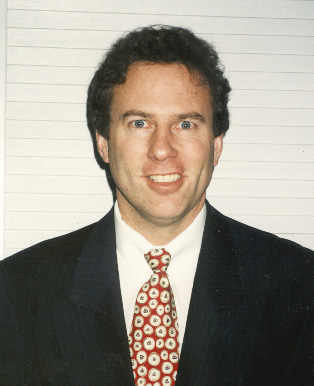Programmatic and Relevant Ads: Successfully Tapping the Universal Passion

The smarter way to stay on top of the multichannel video marketplace. Sign up below.
You are now subscribed
Your newsletter sign-up was successful
It was one of those “Ah-ha” moments. It then turned quickly into an out-loud “What!!!???” moment.
The San Francisco Bay Area’s KGO radio station was talking over-the-air with an anonymous technology editor, labeled an “expert” on the topic of advertising. It was mid-afternoon last Friday, Sept. 18.
The topic was ad-blocking, specifically a new ad-blocking application offered on various devices, which was showing itself, at least on a short-term basis, to be rather popular.
Inaccurate Opinion
Unfortunately, at a point near the conclusion of the segment, the announcer gave the expert a chance to answer the question of what is ahead for ad-blocking. At that point, frankly, I believe the expert completely fumbled that opportunistic hand-off.
The expert tech editor’s view was that consumers will not like ads that are specifically aimed at them and their interests and passions, also known as programmatic media, programmatic marketing and programmatic advertising.
His words were along the lines of, “Folks are saying they don’t want [targeted ads].” And our expert said this in an unqualified way, not using any qualifier words, which we learned long ago in school were so important. Indeed, rhetoric 101 says that if you are not 100% sure, you should rarely state things inflexibly, as absolutes.
The smarter way to stay on top of the multichannel video marketplace. Sign up below.
This is especially the case when it comes to the future of something as chaotic as today’s TV and radio.
Another Critical Option
Having written two telecom and media books deeply involved with the advertising business -- especially what advertising means for and to consumers (Digital Signage and Digital Video Recorders: Changing TV and Advertising Forever), the gentleman’s unqualified and unequivocal statement floored me. Here’s why.
To start with, this question of the future of advertising, which is a very important and ultimate future of all content, as noted above, just cannot be stated in absolute terms … by anybody. There are still too many unknowns and untesteds.
Thus, that ultimate answer cannot be, “They will like this type of content, they will not like this.” Rather, the real answer is much more nuanced.
The real point is: Consumers can be encouraged and even enticed, into watching just about anything. Yet, to do so, a content maker has to first make that content relevant, and then, perhaps, second, make it entertaining or intellectually satisfying.
In short, just one of the other options this tech editor left out was that of relevant advertisements.
In my opinion, that is the truest answer to the future of advertising, the world over.
The Future of Advertising
Relevant advertising works. What are now the concepts of “programmatic” and targeted ads are the first steps toward that mantra.
Indeed, in my opinion, they are the first steps toward what will work, and I say that very nearly unequivocally.
Combining intensive and even more sophisticated data analytics with the modeling of consumer behavior brings relevant advertising even to the most advertising- resistant video viewers.
Why is that? That is because everybody, yes an unqualified everybody, has something they are interested in, and most have lots of things they are passionate about. Indeed, this is one of the few places I am willing to stick my head out toward something like an absolute.
Relevant and entertaining and intellectually-stimulating content, including advertising, that captures each individual person’s passion, and tells them something about that topic that they want and are welcome to … well, that is what gets to that Holy Grail of Sales, i.e., the advertising that works.
And it is important to remember the importance of advertising in the world of marketing goods and products. In the content world, ads ensure those who do the work and the creating get rewarded for their efforts. Without that payment, the entire system breaks down, under any model. People rarely work for free.
In summary, advertising that works -- i.e., relevant ads that people will watch -- is coming, I say to all the tech editors of the world; indeed, to everyone I say: Relevant Ads Are Coming! To see that perspective, you just have to open your perspective a bit, and take in some other views. Relevant ads should be one of them.
P.S.: Perhaps recognizing the importance of respecting that ultimate ad model, the developers of the ad blocking app, “Peace,” withdrew its iOS app from the App Store over the weekend. It, too, will seek out those other perspectives to try to find the true balance between no ads at all and those that work!
Jimmy Schaeffler is chairman and CSO ofThe Carmel Group, astreaming/broadband, broadcast and pay TV/video consultancy based in Carmel by the Sea, Calif.; he writes about telecommunications and media.
Jimmy Schaeffler is chairman and CSO of The Carmel Group, a nearly three-decades-old west coast-based telecom and entertainment consultancy founded in 1995.

